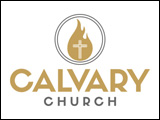A sound financial plan usually includes developing and maintaining a portfolio of investments that you will, at some point, tap into on a regular basis to cover living expenses or for some other ongoing need. That is most likely to occur after you retire but, depending on your unique financial needs, it could come earlier – so here are five fundamentals for getting the most from your investments.
1. Be realistic about whether or not your current investments will deliver an adequate level of income In retirement, your income will usually consist of amounts you’ll receive from the Canada Pension Plan, Old Age Security (CPP/OAS), private pension plan(s) and perhaps work income, plus draws from your investments. If you think your retirement expenses will be such that the income produced from your investments will be inadequate, you should revisit your portfolio and savings strategies now.
2. Verify that your income will last as long as you need it The level of income you draw from your investments should not completely deplete your savings while you still need them. The investments you choose will depend on your investment style and income needs.
3. As your expenses increase with inflation, your income needs will also change A portfolio that consists solely of fixed income investments, such as GICs, is unlikely to produce long-term growth above inflation. Growth in income comes from growth in assets. That’s why investing for income during a long retirement usually means including investments in diversified equity markets, depending on your comfort level with market risk.
4. Assess your need for income stability and how to achieve it Be mindful of the impact that constant withdrawals can have on your investments. If you need a high level of income stability, look at investments that deliver regular distributions – fixed income, real property, dividend paying securities – or products that provide a guaranteed monthly income, such as annuities.
5. Consider the tax impact on the income you draw Income from investments held within a TFSA are tax-free, while income from your other registered assets is fully taxable. For your other accounts, the tax on interest is generally higher than income from dividends or capital gains. The amount of your taxable retirement income may also trigger clawbacks of your OAS benefits. Look at investment structures that can provide more tax-advantaged income for non-registered accounts.
Planning to ensure you retirement income needs will be met can be complex. Your professional advisor can supply the expertise and vision you need to meet those needs.
This column, written and published by Investors Group Financial Services Inc.(in Québec - a Financial Services Firm), presents general information only and is not a solicitation to buy or sell any investments. Contact your own advisor for specific advice about your circumstances. For more information on this topic please contact your Investors Group Consultant. Insurance products and services are distributed by I.G. Insurance Services Inc. (in Québec - a Financial Services Firm). Insurance licence sponsored by The Great-West Life Assurance Company outside of Québec.



